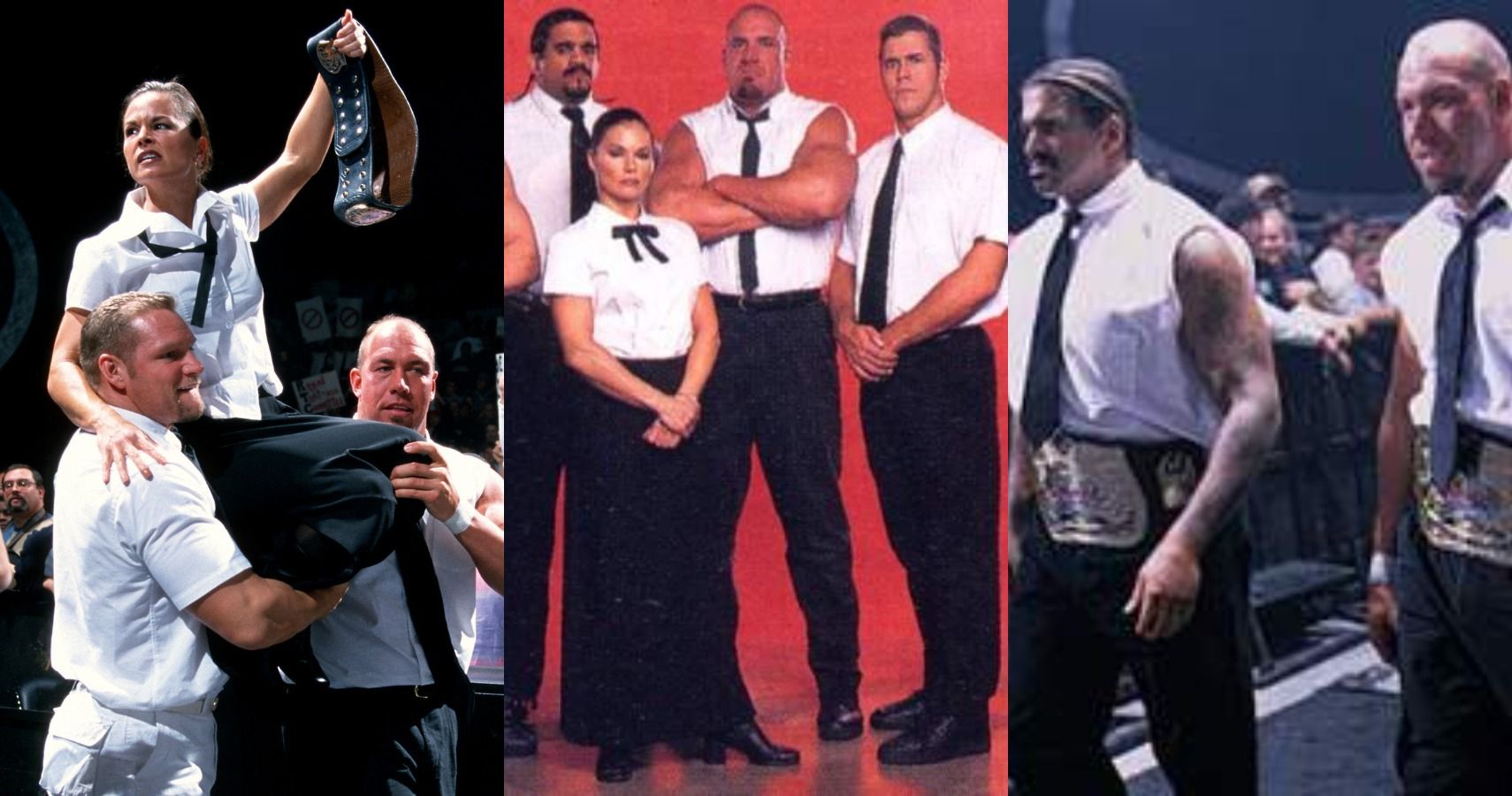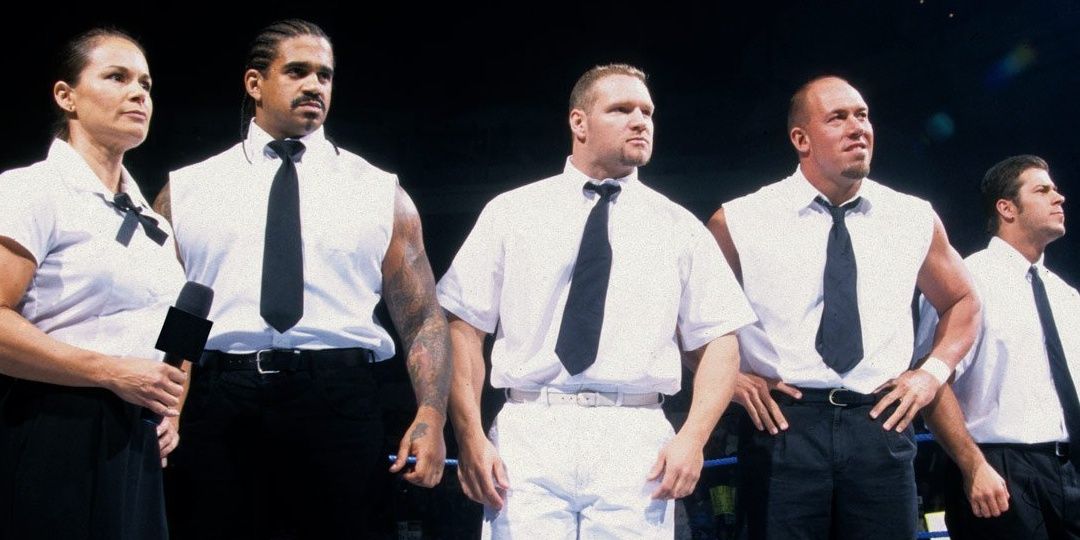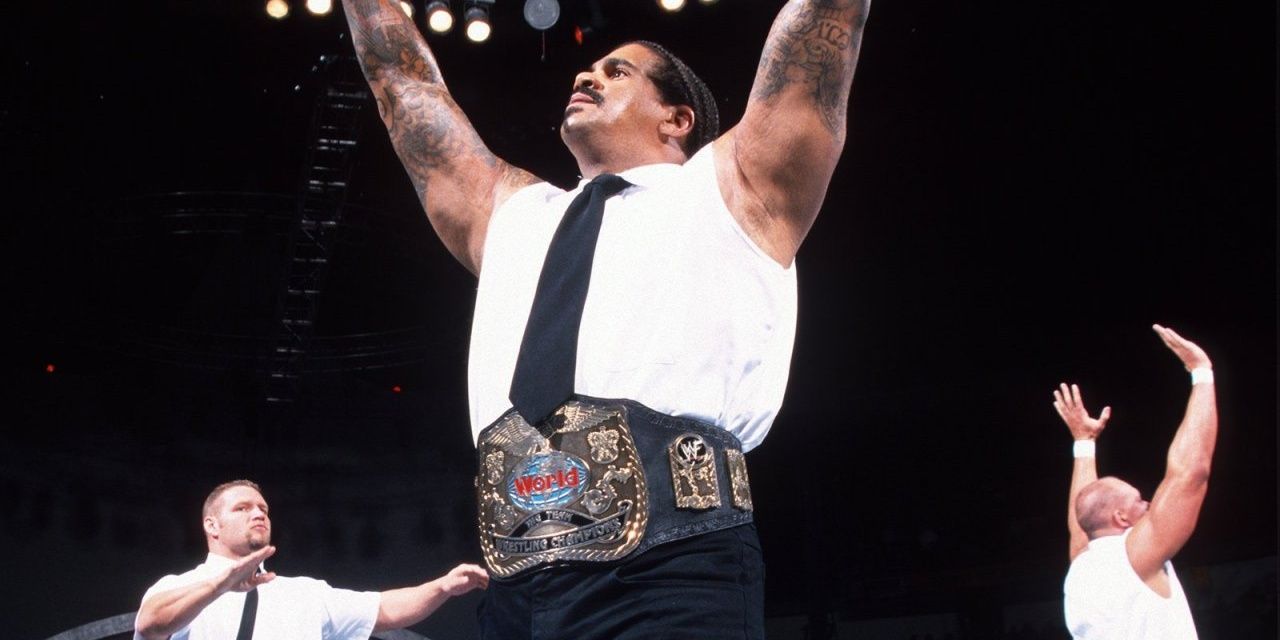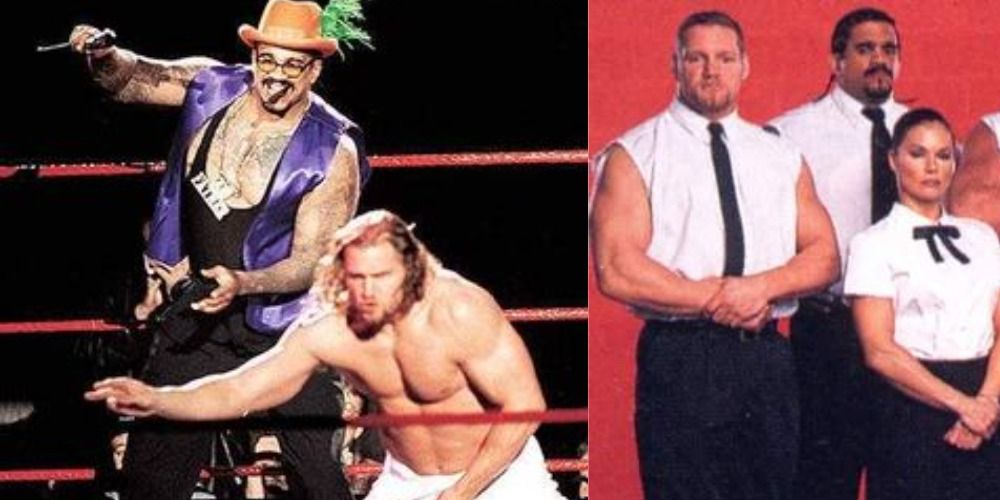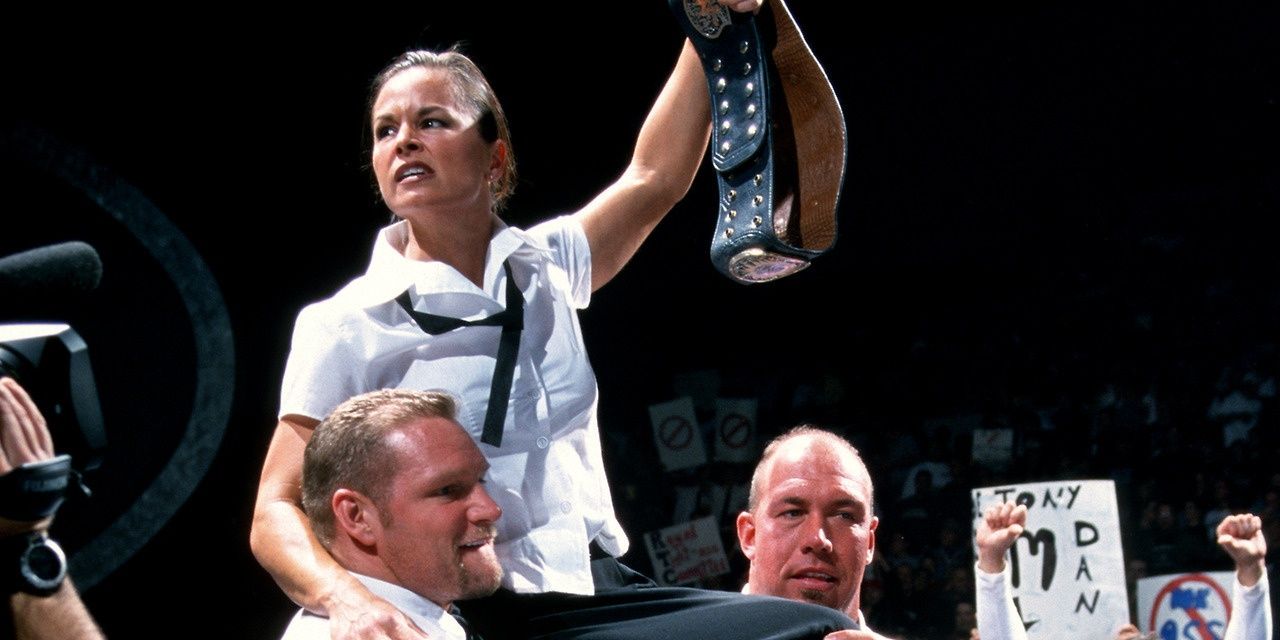When fans think of the major factions of the Attitude Era, their minds go to D-Generation X, The Corporation, The Ministry of Darkness, or perhaps even The Hart Foundation group from the earliest days of Attitude. They might consider the short-lived Brood, the comedic Mean Street Posse, or The Union as well. But one of the truly great stables lost to the passing years--and that was a perfect fit for their time--was Right to Censor.
Drawing Heat From Attitude Era Fans
It was difficult for a heel to succeed in The Attitude Era. So many traditionally heel characteristics like making fun of people, using strong language, or showing a mean streak became defining elements of the top champions featured in this period, like Stone Cold Steve Austin and The Rock. Indeed, it’s a period of WWE programming that required the bad guys to think differently.
Enter Right to Censor. Clad in black ties and slacks, white collared shirts and socks, the group looked anything but cool. Moreover, they had a gimmick all about censoring sexuality, profanity, and extreme violence. These elements were some of the Hallmarks of what made the Attitude Era so popular with a core audience of teenagers and young adults, and so Right To Censor was immediately established as an enemy to the fans.
Right To Censor Was A Talented Faction
Right To Censor featured a deceptively deep pool of talents. WWE never put a brighter spotlight on Steven Richards than they did with this group, where he served as the mouthpiece and as a “player coach” who divided his time between actively wrestling and managing. At his side stood super athletic young big man in Bull Buchanan, one of the top mid-card workers in Val Venis, a great gimmick worker in The Goodfather, and an elite technician from the women’s division in Ivory.
The straight-laced, annoying personality group made them magnets for heat. Being able to back up their off-putting personalities, mean-spirited promos, and annoying entrance music with solid performances bell to bell in the ring elevated this stable to the next level.
Right To Censor Offered A Reason To Tone Down Edgy Gimmicks
Right To Censor launched in July 2000 and lasted for nearly a year. The group is widely regarded as a parody of well-meaning groups that criticized and sought to censor WWE’s more provocative programming choices of the time. However, they may have also more subversively represented a sensibility WWE actually wanted to get back to.
The Attitude Era worked in its time, and the more adult style was crucial in competing with WCW in the Monday Night War. However, this style of booking had a shelf life, as it alienated a number of business partners and made it challenging to captivate or sell merchandise to impressionable children. Marketing toward and profiting from kids had been part of the foundation of WWE since its national expansion in the 1980s. Particularly, putting aside the pornographic element of Val Venis’s character, and having The Godfather step away from pimping made strides toward taking the edge off of WWE as they steered toward a PG product in the years to follow.
The Last Big Angle For Chyna
Chyna was a standout throughout the Attitude Era, whose efforts included wrestling men and, at her peak, emerging as one of the top ten biggest stars in the company. She had arguably run her course in intergender wrestling, though. As WWE sought to move her over to the women’s ranks, a feud with first the men, then Women’s Champion Ivory from Right To Censor facilitated the transition.
The angle saw Chyna work tag team matches with different permutations of Right To Censor, en route to Ivory proving instrumental in injuring her neck. Ivory was positioned as one of the greatest heel Women's Champions the company had seen. A several-month story culminated at WrestleMania 17, where The 9th Wonder of the World positively dominated Ivory to take the title off of her. Unfortunately, Chyna would end up leaving WWE months later, before she could realize her potential as the new face of the women’s division. As such, warring with Right to Censor became quite arguably the last great story of her WWE career.
Right To Censor couldn't compete with the star power or world title victories of some of The Attitude Era's most iconic factions. Nonetheless, the group was uniquely well-suited to its mid-card role and a better unit than most fans remember today.

